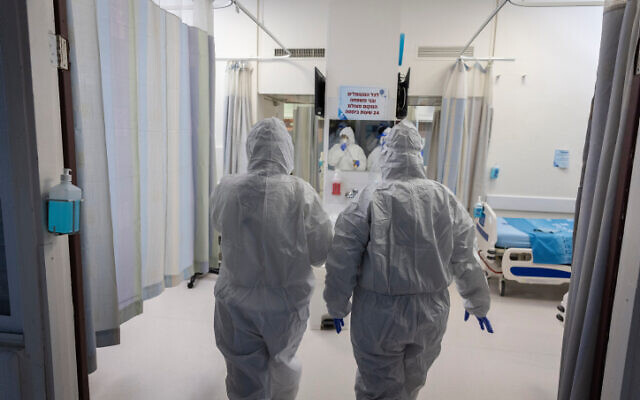Israel approves 19 programs for $30 million digital health initiative
Project to enable health organizations to share anonymized medical data with startups for better healthcare
Ricky Ben-David is The Times of Israel’s Tech Israel editor and reporter.

Israel has selected 19 programs for a new digital health initiative that will allow health organizations, such as HMOs, hospitals, and institutes, to build the digital infrastructure required for anonymized data-sharing and R&D collaborations with healthcare startups.
Participating health organizations were tasked with coming up with proposals to establish or expand dedicated units that will promote close cooperation projects with the health tech industry and allow companies and research centers to tap into a trove of medical data for insights, analysis, validation, and trials.
Funding for the overall NIS 100 million (about $30 million) three-year initiative is drawn from the budgets of the National Digital Health Plan, currently under the purview of the Economy Ministry, as well as from the Health Ministry and the Israel Innovation Authority.
Among the 19 programs (out of 30) selected by the government authorities was a proposal by five Israeli hospital organizations — Tel Hashomer, Hadassah, Rambam, Assuta, and Rabin — to establish the digital infrastructure for sharing clinical tests, a proposal by the Assuta Medical Center to make videos of endoscopies available for R&D, and a proposal for a collaboration between the Mayanei HaYeshua Medical Center in Bnei Brak and the Holon Institute of Technology to make accessible data on mental health and midwifery.
The program is expected to “significantly expand the range and quality of partnerships with companies and startups while meeting the needs of innovative research and development in this field,” the Israel Innovation Authority said in a statement Monday.
The selected programs won an initial grant of NIS 40 million (nearly $12 million) for a year, and can re-submit next year for further funding for up to three years.
Israel Innovation Authority CEO Dror Bin said that Israel needs to “create effective partnerships, at competitive costs” in order to “advance innovative health services in the Israeli health system, and to allow for the development of the industry in Israel.”
The existing databases in the health system are some of the best in the world in terms of their range, and making them accessible to industry [entities] will allow for the breakthrough of Israeli innovation in the area of health tech,” said Bin.
Israel’s four HMOs — Maccabi, Clalit, Meuhedet, and Leumit — have spent two decades building databases of digitized medical records, covering the files of more than 98 percent of the population. Touting this “huge asset,” the Israeli government in 2018 approved a NIS 1 billion National Digital Health plan to create a digital database of these medical files and make them available to researchers and enterprises.
The purpose of the digital health program, said Aviv Zeevi, VP of Technological Infrastructure Division at the Israel Innovation Authority, is “to create an international standard for sharing medical data like SEER [a US program that provides information on cancer statistics and for] building APIs [application programming interface, software that allows for connection between devices and programs] that will allow health organizations to work with the data. This will also companies to get data from different HMOs and others, based on the same structure.”
The general overall idea is to build better healthcare, create solutions for health systems, and improve public health, he explained.
Israel boasts over 1,500 companies in the life sciences sector, which is generally divided into four major subsectors – digital health, medical devices, biotechnology, and pharmaceutical therapeutics.









